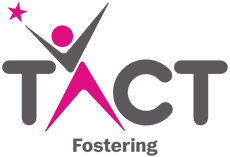You may have heard us referring to our Education Service before, but perhaps wondered what exactly it is and what it means for our children and young people.
It has long been recognised across the social care sector that educational attainment for children in care is significantly lower than their non-looked after peers. This is due to them having to face difficult circumstances in their home lives, meaning absence from school or moving schools often. As well as this, they simply may not have the capacity to learn on top of dealing with mature issues and inconsistent care throughout their lives. In 2019, TACT launched the specialist Education Service in an effort to close the gap and ensure that foster carers and staff are fully supported in their effort to making sure the children in their care have access to their full educational entitlement based on their age, ability and needs.
So, what support do we offer?
The Education Service advocates for young people by offering full support to carers. This can include advising on educational meetings, Personal Education Plans (PEPs), assessing and assisting with any strategies to deal with issues within the school environment, and providing funding for short falls in resources (for example, Education Psychology Assessments). The service acts as a communication link between the child/foster family and the school.
A big focus for the Education Service team is training and projects of innovation. This includes being part of Literacy Catch-up with What Works for Children in Social Care to get vulnerable children up to speed, and writing the Black Lives Matter curriculum, to help children learn and understand their ethnicities and cultural backgrounds. The service also helps to gain children school places if they are out of education, prevent permanent exclusions (as well as reduce the number of temporary exclusions) and support applications for specialist support schools and Education, Health and Care Needs Assessments (EHC plans). Many children differ on what support they need based on their educational, social, and emotional progress, and our Education Service promotes the right to education in all its forms. We also offer on-going careers advice to older children, as well as liaise with Virtual School Heads, who have a volunteer in post at every Local Authority who works to improve educational outcomes for looked after children.
Who is running it?
The service is overseen by our dedicated Head of Education, and consists of a full-time Advisory Teacher in England, dedicated part-time Advisory Teachers in Wales and Scotland, a Post-16 Advisor and an Education Support Administrator. TACT reinvests in employing highly qualified and experienced teachers and education professionals to put children at the centre of all we do.
Our Head of Education, Amanda, comes with a strong background, working as a teacher and senior leader in a variety of learning environments, including mainstream schools, hospital units and residential care homes. In addition, the Head of Education has a good understanding of educational law and statutory processes around the schooling of children in care, and has spent many years working for Local Authorities in Special Educational Needs and Disability (SEND) departments. Amanda is an expert in the field of Education of Care Experienced Young People and is a member of the National Association of Virtual School Heads.
What is our vision for the future?
The education service echoes the same sentiments that are held TACT-wide, with an emphasis on ‘aspiration’ to promote a high-quality education for all; the hope is to close the gap between attainment and expected standards and to ensure that young people do not miss out on opportunities by virtue of being in care. We want to support our young people to achieve as a good parent would, with care and encouragement. We want our young people to know that they are not alone, that they can be anything they want to be and that they can have a positive future. By working with a positive regard for every young person, we hope that we can support them and their foster carers to hold high aspirations and to believe in themselves.
And what has the service achieved so far?
In 2021, the Education Service achieved the following:
- The team has grown to include a full time Advisory Teacher for England and a dedicated Advisory Teacher for Scotland to join the Head of Education and Education Support Administrator, with agreement to appoint a Post 16 Advisor who will be joining us soon. This has allowed caseloads to be split, RAG rated according to need and allocated to each Advisor based on their area of expertise.
- Together we have been able to reach more young people and support more staff and carers than ever before.
- Together we have been able to reach more young people and support more staff and carers than ever before.
- We managed to ensure that 80-90% of PEPs were saved on Charms, which means we have important educational data on our young people, which is readily available.
- Now all young people’s educational progress is monitored and an even more pro-active approach to supporting needs can be taken.
- Following another long period of school closure, we were able to ensure that young people successfully adapted to home learning, or they were promptly secured a place in school.
- All young people who needed equipment to access learning were sent a laptop and other learning resources.
- When schools re-opened, we ensured that every TACT child received an appropriate school place or alternative provision suitable for their age, ability, and specific needs with a smooth transition back into education.
- The 2021 GCSE exam results were excellent with 58% of our young people achieving grade 4 or above in Maths, 76.5% achieving a grade 4 or above in English Language, and 69% achieving grade 4 or above in English Literature.
- The Head of Education continues to successfully challenge and overturn all permanent exclusions by strongly advocating for our young people, and in doing so has ensured that no vulnerable young person was denied the opportunity to learn.
- We reduced fixed-term exclusions through early intervention and engagement with Virtual Schools, as well as securing appropriate alternative provisions for those who need to learn in a more practical way.
- We secured further Education, Health and Care Plans via parental request, resulting on £900,000 of special school fees being agreed long term. We ensured that EHCPs for young people over 16 continued, ensuring that our young people could complete their learning journeys until 25, as well as securing a commitment for £750,000 worth of college support for young people with complex learning needs.
- We completed our pledge to write BLM curriculums for primary and secondary schools, which are available for all young people, their schools, and carers to access to raise awareness of Black History and the Black Lives Matter movement. This is a high-quality resource.
- We have run over 50 training sessions for schools, staff, and carers on our own copyrighted TIINAA – Trauma Informed, Intuitive, Nurturing and Attachment Aware training which has been shared with OFSTED, mentioned during the National Conferences for Care Experienced Young People and was the most viewed blog of the year for Inside Government outlining our work in the field of trauma informed education.
- We were the first and only Independent Fostering Agency to secure a place on the What Works for Children in Social Care literacy programme, securing training for over 40 carers, thousands of pounds of free resources and hundreds of pounds to remunerate our carers for their time engaging in the project.
- We delivered several Phonics training sessions for carers whose young people sat the Phonics Screening, resulting in enhanced scores for our 6-year-olds.
- We attended numerous education meetings and supported our SSWs, carers, and young people in ensuring Pupil Premium Funding was released and that our young people were supported to fulfil their potential academically, emotionally, and socially.
- We used our budget effectively to fund resources, Educational Psychology assessments, nursery places, private exams, and an identities life skills programme for many of our young people.
TACT are dedicated to developing new and innovative services to help make a difference to the lives of young people. Read more about how we reinvest to change children’s lives.


